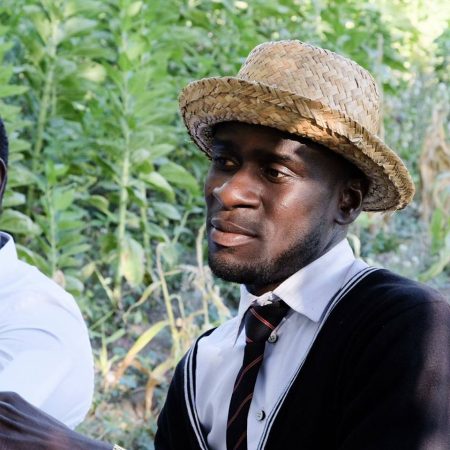
Daniel Oulai: The Future of Agro-Economics
It is often said that change begins with one person who has an idea and Daniel Oulai is a glaring example. Hailing from a small village in Côte D’Ivoire, Oulai saw a need in his immediate environment and even without proper funding or resources, decided to rise to the occasion.
He spoke to the Tony Elumelu Foundation team about the current state of his business, challenges, life lessons and his plans for the future.
Q: What inspired you to start your company?
A: It all started in 1995 at my village in Dainé on the western region of Côte D’Ivoire. At the time, after farmers have harvested their crops, trucks usually gathered at my uncle’s house and workers loaded cocoa bags with farm produce to prepare them for sale.
At the time, I saw these farm producers sweat and complain about the selling prices of their crops as well as the loss of major portions of their harvest due to poor pest control. These experiences spurred me to look for ways to improve the work of farmers in Africa beginning with my immediate environment.
Q: Can you describe your business, highlighting the services and solutions you provide?
A: In October 2016, I founded The Grain Library (Grainothèque). The business was created to provide social support to farmers in rural areas by providing access to quality seeds, relevant data and necessary technological tools needed for maximum agricultural output, precision management and general improvements in food production.
Q: What is your vision for the business and how many employees do you have currently?
A: At The Grain Library, we believe in the power of relevant data and information as a means of revolutionizing the way local farmers run business which ultimately affects their output.
Our vision is the make the agricultural sector an all-inclusive sector that enables small-scale farmers to have healthy competition that opens the doors for wealth creation, healthy food consumption and job creation for youths. Currently, we have seven people employed at the company.
Q: What challenges have you encountered on your entrepreneurial journey so far?
A: My major challenge in the early days was the mindset of people in my country towards the agricultural sector. At the time, agriculture was treated a messy activity that was reserved for people who had failed at other important things in life. This made it very difficult for my parents and friends to understand my decision to pursue this path. However, I decided to keep fighting no matter the discouragement and this has brought me to where I am today.
Q: Since you began running your business, what impact has it had on your immediate community?
A: So far, there are over 500 small-scale farmers who benefit directly or indirectly from the grain bank. Also, by helping them get the best yields from their crops and reducing post-harvest loss, these farmers have become more self-sufficient and this reinforces their economic performance.
Q: Can you share any personal transformation story with us?
A: I have a diploma in marketing and management and I found myself in the agricultural sector without any experience. It was a very trying time in my life as most people around me thought I was crazy.
Back then, my only tutor was the internet and I did my best to utilise this tool. Today, I have a specialised Master’s degree in agriculture and I have become one of the faces of agricultural entrepreneurship in my country. All this was made possible because I used the internet to find the answers I was seeking.
I believe that all human beings should see their lives as a part of a difficult mission and should developmental and operational structures to enable them to overcome their challenges.
Q: What are the key benefits that you gained from the Tony Elumelu Foundation Programme?
A: The programme’s major benefit to my business beyond the seed capital, mentorship and training was exposure. Being accepted into the programme in 2017, revealed us to our community and they began to see us in a different light. This image boost helped create a positive impression of the agricultural ecosystem in Côte D’Ivoire and we became a reference point for other agricultural start-ups.
Q: What are your plans for expansion and capacity building in the near future?
A: We have diversified our investments and are currently trying to position ourselves in the pork sector in Côte D’Ivoire. We also just launched a programme called “ProAgripreneur” which aims to support 25,000 young farmers in the country for a period of 10 years. This will be done through our closed pedagogic integrated system in western Côte D’Ivoire which will allow us to have 25,000 new customers and a significant increase in livestock.
